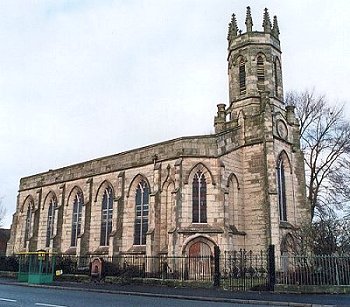THE REVEREND JOSEPH BUTTERWORTH OWENThe Revd. Dr. Glynne WatkinThe Reverend Joseph Butterworth Owen served as the evangelical and missionary vicar of St. Mary’s Church, Bilston, from 1838 until 1854. Among his evangelical contemporaries were the Reverends William Dalton (St. Paul’s and, later, St. Phillips), Alexander Baring-Gould (St. Mark’s), William Lister (St. Mary’s, Bushbury, 1839-1864) and John Richardson (St. George’s, 1860-1868). He was born in Portsmouth in July 1809. A graduate of St. John’s College, Cambridge, he took Holy Orders in 1835 and served as a curate at Walsall Wood. He was then appointed vicar at St. Mary’s in 1838.
Owen became involved in the movement for public health reform, claiming that insanitary conditions and overcrowding served to undermine people’s religious and moral habits. He was a keen supporter of the 1848 Public Health Act and urged the Wolverhampton Corporation to act upon it by improving the town’s drainage and sanitation. He also publicly supported the recently established South Staffordshire Water Company in its efforts to improve the growing town’s drainage and drinking water supplies. He also campaigned for improved housing conditions in the town, arguing that ‘if you house men like cattle, it is no wonder if in other ways that should develop more of the brute than of the man’. Owen was also keen to contribute within the field of adult education for working class folk and, during his time at Bilston, became involved in the provision of extended library facilities for the town. Concerned about the moral and spiritual welfare of his flock, he preached a consistent message of thrift, industry and sobriety, through which some degree of comfort and respectability could be attained. Like his evangelical contemporaries, he sought to take religion beyond the walls of the church and into the everyday lives of his people. Owen left Bilston in 1854 to become vicar at St. John’s Church, Bedford Row, London. In 1858 he became vicar of St. Jude’s Church, Chelsea. He died on May 24th, 1872, aged 62 years. Some of Owen’s own writings, including essays on anti-Catholicism and a biography of George Benjamin Thorneycroft (first Mayor of Wolverhampton), are available at the Wolverhampton Public Library. |

